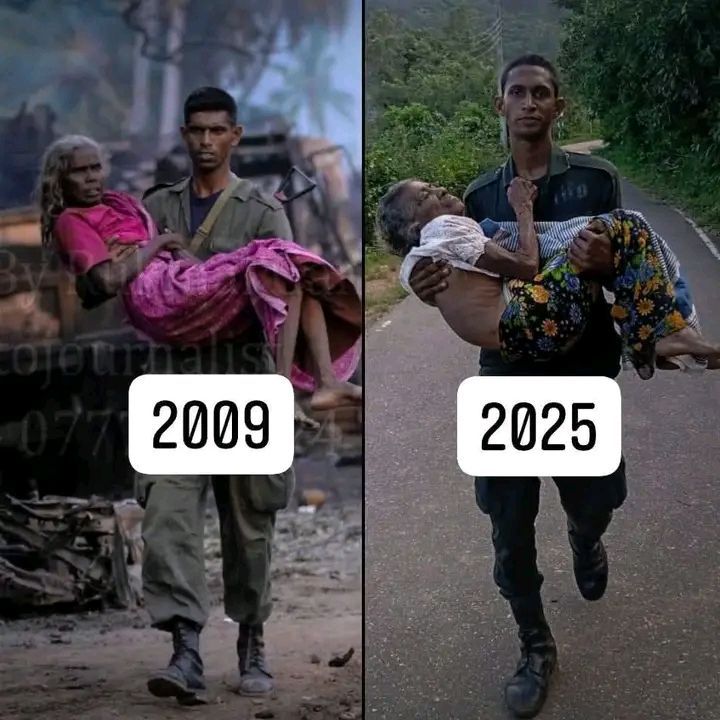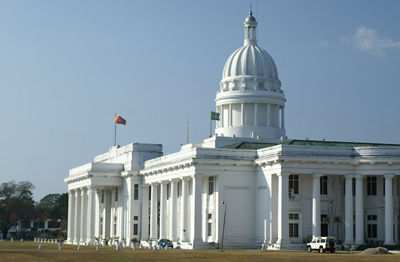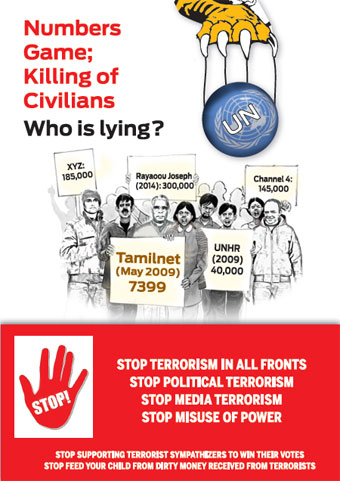Andrew Mann – Deputy at US Embassy (Colombo) can make rough for Sri Lanka
(Courtesy of -Asian Tribune)

The American diplomat in his first posting (1997-2001) to the United States diplomatic mission in Colombo, Sri Lanka as the head of the political section openly displayed his contempt toward the Sinhalese and was subtly acknowledged the ‘struggle’ of the Tamil Tigers. Andrew Mann, Deputy Ambassador US Embassy Sri Lanka
The Chairman of the Committee on International Relations of the US Congress Congressman Benjamin A. Gilman in a special communication in June 2000 to the then US Secretary of State Madeline K. Albright on Sri Lanka’s internal conflict and issues – in which he stated that the “U.S. should make it clear that we would support all options including secession to be discussed in the negotiating process” – singled out to commend this Colombo-based US diplomat for his “outstanding work and exemplary professionalism.”
During this American diplomat’s tenure in Colombo, he contributed to a May 2001-released US Agency for International Development (USAID), which is an agency under the state department to which this diplomat belonged, study on ‘Sri Lanka Democracy and Governance Assessment’ for the American donor agency to believe that ” full citizenship rests upon one being a Sinhalese Buddhist. Intern, anyone falling outside the category is considered politically and culturally subordinate.”
He is now in his second posting as the Deputy Chief of Mission (DCM) at the US Embassy in Colombo, Sri Lanka – Andrew C. Mann.
With this history behind him those who handle Sri Lanka’s foreign affairs, and even those who are responsible for this South Asian nation’s security and defense, could get a glimpse of what is in stock for Sri Lanka when Mr. Mann take charge of political assessments and advise to Washington under a new US envoy in the near future.
The spokeswomen for the US State Department Jen Psaki cleared a ‘misconception’ at Washington media briefing on Thursday, October 2 in this
manner:
Question: There is a report that I have seen from a Sri Lankan newspaper suggesting that when Secretary Kerry met with the Sri Lankan president, I think it was during UNGA, that he had – that Secretary Kerry had indicated or suggested a softening in the U.S. position on Sri Lanka. The piece I saw didn’t specify what, but I think the inference was that it was a softening on human rights concerns in Sri Lanka. Is there any truth to that? Did he signal that he would take human rights less seriously there?
Ms. Psaki: Absolutely not. I saw the same story. The only thing that was right was that the Secretary did speak with the Sri Lankan president on the margins of the UN General Assembly. He did so with the express purpose of conveying that U.S. policy with regard to Sri Lanka has not changed and it certainly has not softened. We would, of course, like our relationship with Sri Lanka to achieve its full potential, but that will only happen if Sri Lanka builds enduring peace and prosperity for all of its diverse ethnic and religious communities. And that’s why the Secretary, in no uncertain terms, made clear to the president that Sri Lanka needed to take meaningful steps to act like a country that is no longer at war and instead is now building a future that includes all of its citizens. So certainly it had the opposite purpose.
DCM Andrew C. Mann will not consider the political maneuvering of the former Tamil Tiger operatives in the Tamil Diaspora as a measure to bifurcate Sri Lanka, a national security concern for Sri Lanka’s defense establishment despite Ms. Psaki advocates Sri Lanka to “take meaningful steps to act like a country that is no longer at war”
Here is Andrew C. Mann’s ‘illustrious’ history when he was the chief of the political section in the US Embassy in Colombo:
On June 23, 2000, Mr. Mann and two others of the American Embassy – by appointment initiated by Mr. Mann himself – held a meeting at the private residence of Mr. S.L. Gunasekara, the then head of a Sinhalese nationalist movement Hela Urumaya (Heritage of Sri Lanka) and a leading attorney/spokesman for the rights of the Sinhalese, to discuss current developments in the country, a normal diplomatic practice of understanding internal affairs of the host country.
The others who participated with Mr. Gunasekara were onetime parliamentarian Tilak Karunaratne, secretary of the Hela Urumaya, Major General Tilak Paranagama and Malinga Gunaratne.
The organization’s then national organizer Patali Champika Ranawaka is now a cabinet minister under President Mahinda Rajapaksa.
This what Mr. S.L.Gunasekara later said about the heated dialogue the Sihala Urumaya officials had with Andrew Mann.
(Quote) We thought Mr. Mann was interested in our views and policies. We were sadly mistaken. From the word go, Mr. Mann showed hostility towards us. He had come with a closed mind, not to find out about us, but to oppose us. To give an example, when I sketched out the historical background to the conflict and referred to the privileged status the Tamils enjoyed under the British, I referred to the excellent system of schools in Jaffna built by American missionaries.
Immediately, Mr. Mann interrupted me and said” Oh, so this problem is all our fault, is it? ” I was not talking of faults and it took considerable time to convince him of the fact. Later, Mr. Mann asked me how we proposed to solve the ethnic problem.
I said there was no ethnic problem, only a terrorist problem. Immediately he responded, “So, you are going to kill all the Tamils, are you?” I told him that we had no intention whatever of committing genocide, like you did by dropping an atom bomb on Hiroshima. More words and then he said, “Are you accusing my country of committing genocide?”
I said, “yes, I do” then, he said, he could not stay, thanked me for the drink and walked out. The other two diplomats seemed to be embarrassed, said we could meet up again, but had to go because they came in the same car.
I believe that a diplomat in a foreign country, who goes for a discussion with a new party should at least listen with an open mind and should not come with pre-conceived notions. I was taken aback by Mr. Mann’s reaction, because America is a country with the highest degree of freedom of speech, where one can criticize the government or anybody else. I have no doubt that this attitude is peculiar to Mr. Mann and trust that it is not shared by other American diplomats. (End Quote)
Then Mr. Mann, as the head of the political section of the American Embassy was one who contributed to a survey/report undertaken by the USAID on the issue ‘Sri Lanka Democracy and Governance Assessment’. The report was released on 18 May 2001, and following is the understanding Mr. Mann’s political office gave the USAID which is even now entertained by the US State Department.
The report at one place declared: (Quote) The notion of the Sri Lankan nation subscribe to by many Sinhalese – including most of Sri :Lanka’s politically influential Buddhist monks – is based on a firmly – rooted belief in the primacy of the Sinhalese Buddhist majority and the culture. This conception of the nation sees the island of Sri Lanka as the designated sanctuary of the Sinhala-speaking Buddhists. Because of this, the Sinhala language, Buddhism and the whole territory of the island are inextricably linked. By extension, full citizenship rests upon one being a Sinhalese Buddhist. Intern, anyone falling outside the category is considered politically and culturally subordinate. Tamils -Hindus and Muslims – and Sinhalese Christians all feel vulnerable within this conception of Sri Lanka. This ideology has provided powerful legitimacy for exclusionary governance structures in the past, and can have insidious effects on Sinhalese attitudes to the conflict today. (End Quote)
There’s more:
In a official communication addressed to the then US Secretary of State Madeleine K. Albright dated 29 June 2000 by Chairman of the Committee on International Relations of the US Congress Congressman Benjamin A. Gilman, which is produced in full below, declared in one place”The U.S. should make it clear that we would support all options including secession to be discussed in the negotiating process.”
An important Congressional committee prepares this type of letters with the advise and counseling of diplomats in host countries, in this case based on the assistance rendered by the American Embassy, and the political division is entrusted to give such advice to Congressional committees and their members. Andrew Mann was the head of the Political Section of the US Mission at the time Chairman Gilman wrote the following letter to the Secretary of State.
(Quote) I am writing to express my concern over the war and worsening humanitarian crises in Sri Lanka. It is time that our government take a more active role in resolving the crises.
The Tamil Tigers are well positioned to soon retake Jaffna. The Indian government has agreed to evacuate the trapped Sri Lankan government soldiers if both the Tigers and Colombo agree. In order for the evacuation to take place, the government will probably have to abandon their military equipment. This will be a decisive political and military victory for the Tigers.
The process of negotiations begun by Norway could begin to move forward due to the Tigers likelihood of taking over Jaffna. Although New Delhi and Colombo publically state that they will not support independence for the Tamils, it is unclear what the parties, including the Tigers, are really willing to accept. The Norwegians have the agreement of all concerned parties to help begin negotiations and Norwegian diplomats have made several visits to both India and Sri Lanka. The U.S. should make it clear that we would support all options including secession to be discussed in the negotiating process. If all preconditions are lifted then all the parties could get on with the process of resolving their differences.
The Sri Lankan government has a long history of repressing the human rights of the Tamil people. In addition, the Sri Lankan government’s embargo on food, medicine and other essentials to the Tamil people has caused a humanitarian crisis. Its ban on access for the media to the war zones could indicate that the Sri Lankan government is concerned that the outside world may learn things that may not reflect well on its image. For these reasons, it is critical that we express our displeasure over the media ban, we ensure that the flow of arms and training by the U.S. end immediately, and we strongly urge the Sri Lanka to permit humanitarian aid to enter Jaffna. (End Quote)
In a subsequent letter by Congressman Benjamin Gilman dated 30 August 2000 to the Secretary of State Albright, he “express my appreciation for the outstanding work of our U.S. Embassy personnel in Sri Lanka”, and thanked Charge d’affaires W. Lewis Amselem, Political Officers Andrew Mann and Kevin McGlothlin, and Economic Officer Ian Sheridan.
It is this same diplomat who took up duties at the American Embassy, Colombo, Sri Lanka in August 2014 as the Number Two – Deputy Chief of Mission – at a time the former LTTE operatives/advisers/counselors within the Tamil Diaspora are working very closely with the US State Department and its Mission in Geneva. The mission of the former is to bifurcate Sri Lanka to establish a separate/independent Tamil Eelam, a dream the LTTE leader Prabhakaran could not achieve through an armed struggle.
Mr. Mann has an ‘illustrious’ background for the foreign policy handlers and defense authorities in Sri Lanka to remember when confronting issues of human rights, rule of law, war crimes and even genocide.
Didn’t Andrew Mann ask way back on 23 June 2000 from S.L.Gunasekara and his Hela Urumaya colleagues “So, you are going to kill all the Tamils, are you?”
By Daya Gamage
1003 Viewers








